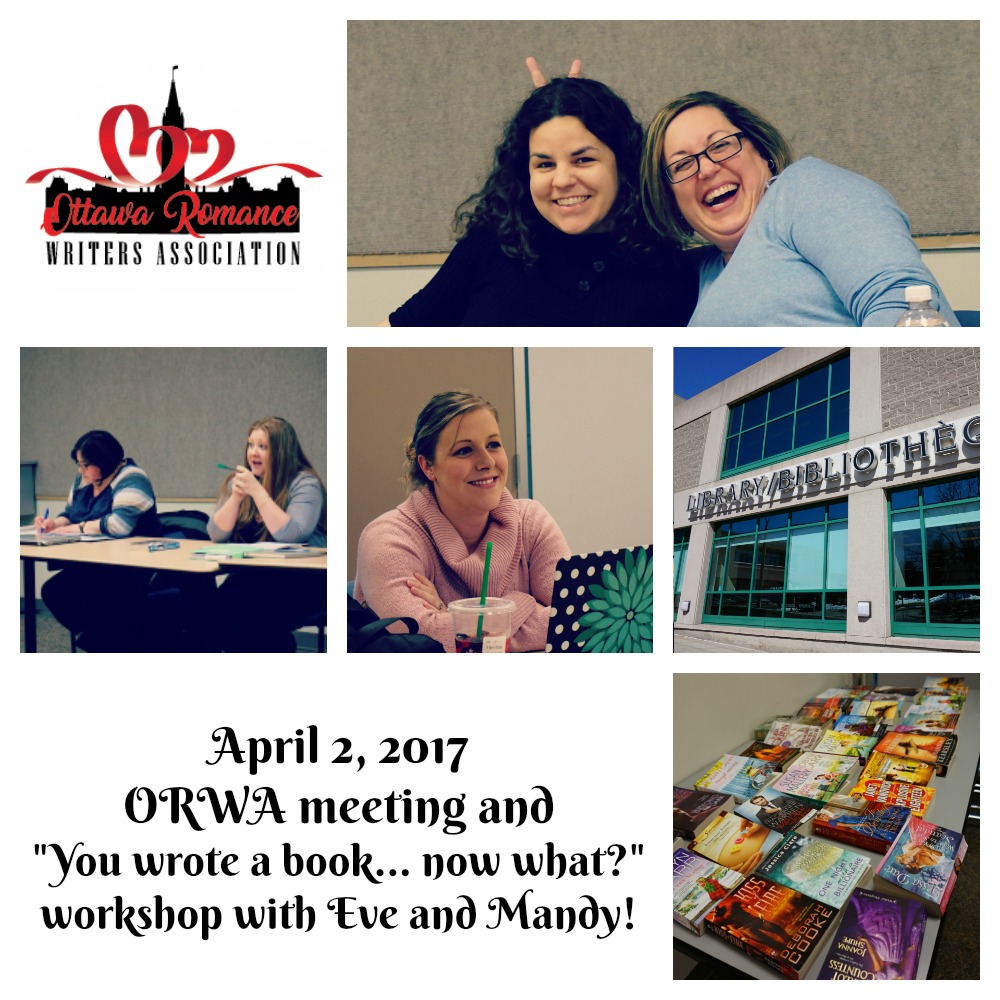 Our April 2017 workshop this week was “You’ve written a book… now what?” and was led by two bestselling and prolific ORWA authors, Eve Langlais and Mandy Rosko. They discussed the pros and cons of traditional and indie (self) publishing, and what to do if you want to submit to a small, medium or large publisher, or what to do if you plan to indie publish.
Our April 2017 workshop this week was “You’ve written a book… now what?” and was led by two bestselling and prolific ORWA authors, Eve Langlais and Mandy Rosko. They discussed the pros and cons of traditional and indie (self) publishing, and what to do if you want to submit to a small, medium or large publisher, or what to do if you plan to indie publish.
We were given a big, important piece of advice to start: “Finish it, please!” because if you don’t actually finish something, then you have nothing. They advised us that even if you don’t have the lifestyle they have (that of a full-time writer), you can still make a commitment to yourself to sit down for an hour a day and write.
They followed that with saying the most important thing to do after you’ve finished is to figure out “is it any good” by having someone objective (someone who has not invested interest in you, someone who isn’t afraid of hurting your feelings) read it. Beta readers can find mistakes and can tell you if it’s a good read. Then, have it edited by a professional editor, and remember that they can see things you can’t (so try to look at their critiques objectively). At this point, you have the option to pitch it to a traditional publisher, or move on to self-publishing.
Many topics were covered and much was discussed. Eve prepared handouts for us, and has shared them here online!
Some of the talking points included:
- Royalties and percentages: remember if you’re publishing traditionally you might get a royalty but then they might only pay quarterly or even yearly. After you get that advance you might be waiting a year for it to publish, and then waiting for you royalty to earn out, and then waiting for the next statement period until you see any more money from your book.
- Contracts: get an IP lawyer to look over large agent or publisher contracts. Be aware of non-compete clauses and rights of first refusal. Contracts are getting longer, meaning publishers may keep your book for 15 years or longer to work on getting their investment back.
- Marketing: you’ll have to do it whether you go traditional or self-published. You need a website and a presence on social media.
- Taxes: put 25% of your money away (50% if you make a lot). You’ll have to pay taxes quarterly, and HST after you make $30,000 CAD. Get an accountant that is familiar with authors.
- Working with traditional publishers (specifically small or mid-sized) can be a big help when you’re starting out because it will help you get an idea of what goes on when putting out a book, and they do most of the heavy lifting for you (since you won’t have to pay for editing, cover design, formatting or distribution).
They ended by saying that there is such a thing as sitting on it too long, editing too much (so much that you edit out the voice and excitement). In addition, if you spend the next year trying to market your one book, all the effort hocking the book months after release is better spent writing the next book.